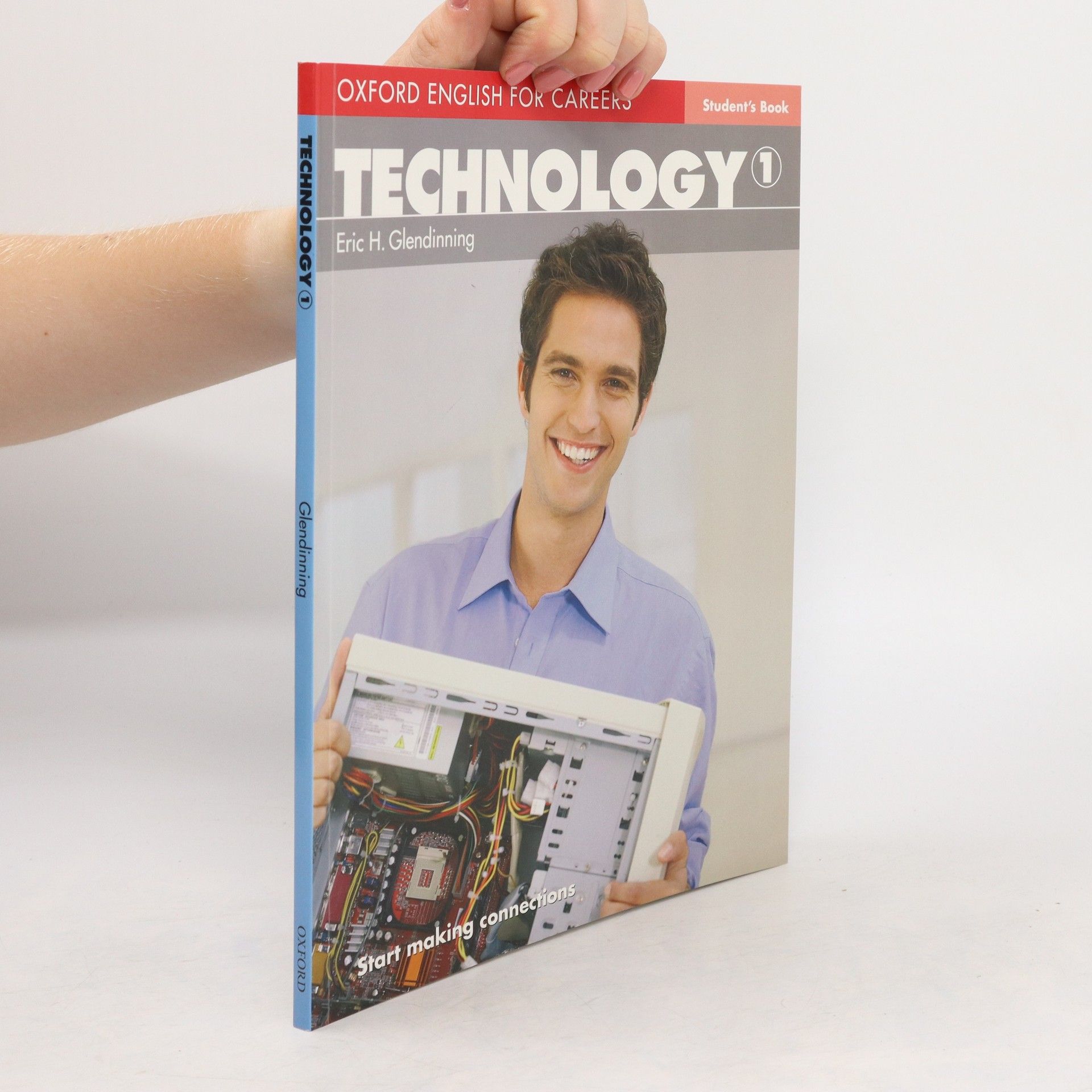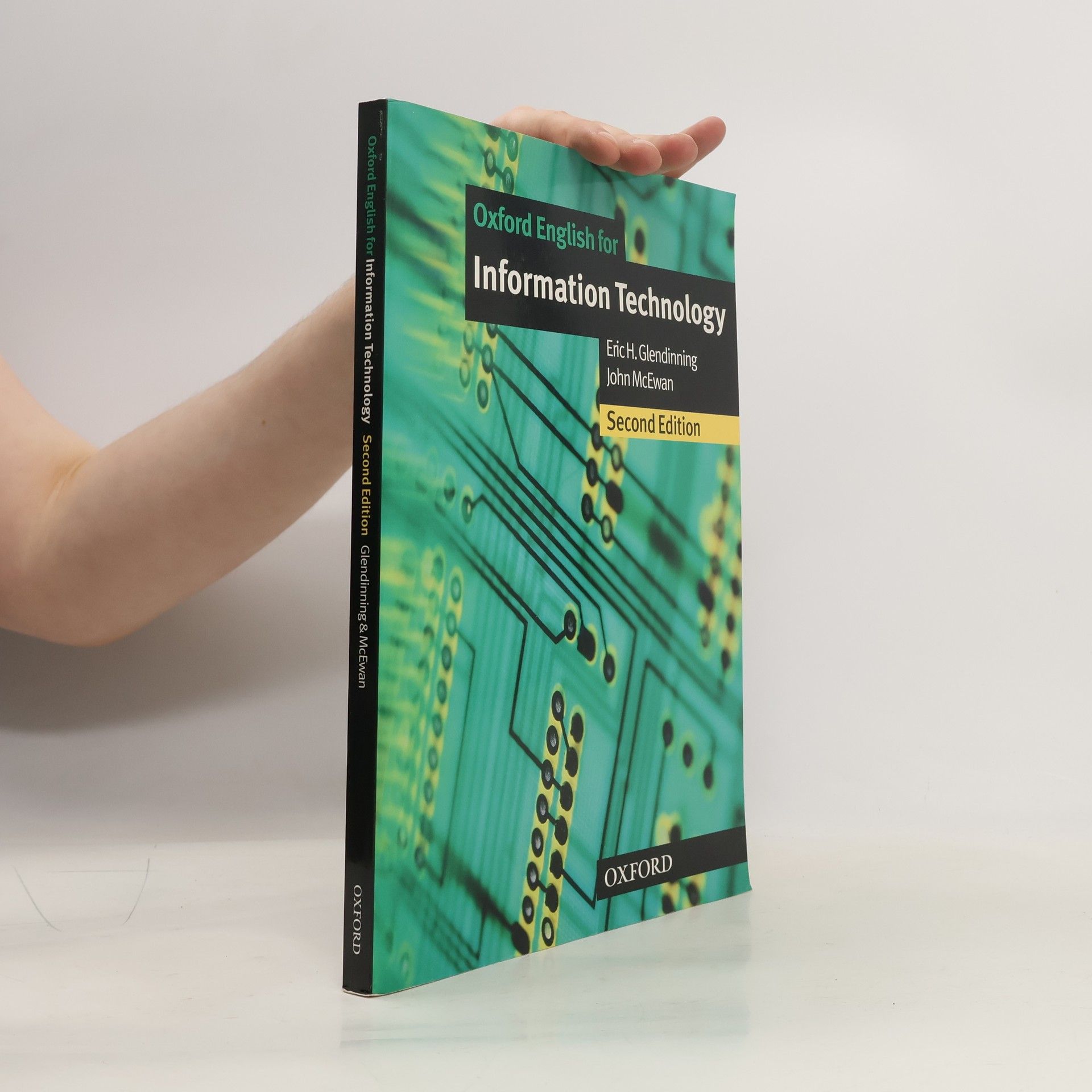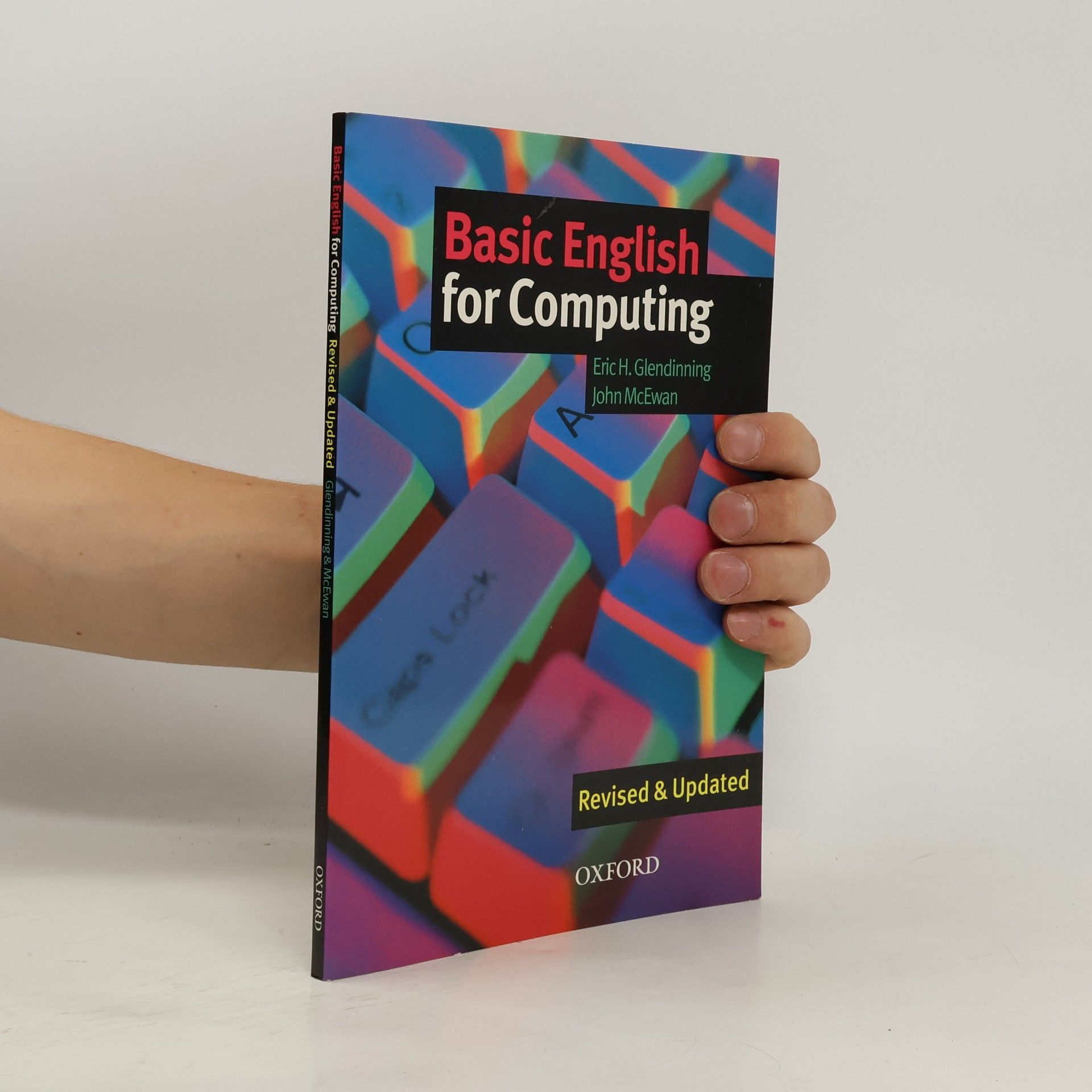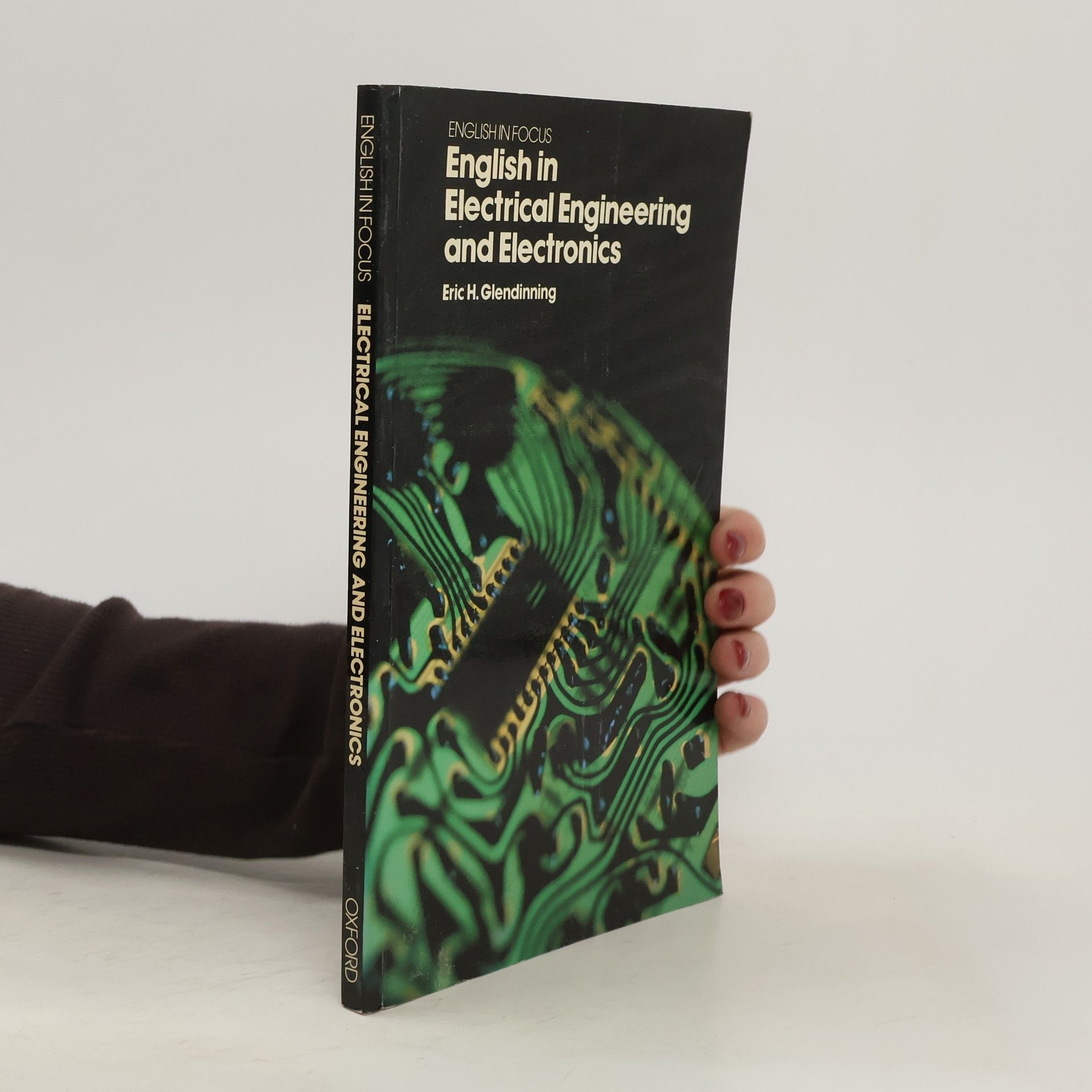Presents a guide for technology students who wish to communicate accurately in English.
Eric H. Glendinning Book order (chronological)
Eric H. Glendinning is a prolific author specializing in English for specific purposes, particularly within technical and academic fields. His work is dedicated to equipping learners with the precise language skills needed for disciplines such as computing, electrical, and mechanical engineering. Glendinning's pedagogical approach emphasizes practical application and the direct relevance of language acquisition to professional and scholarly pursuits.


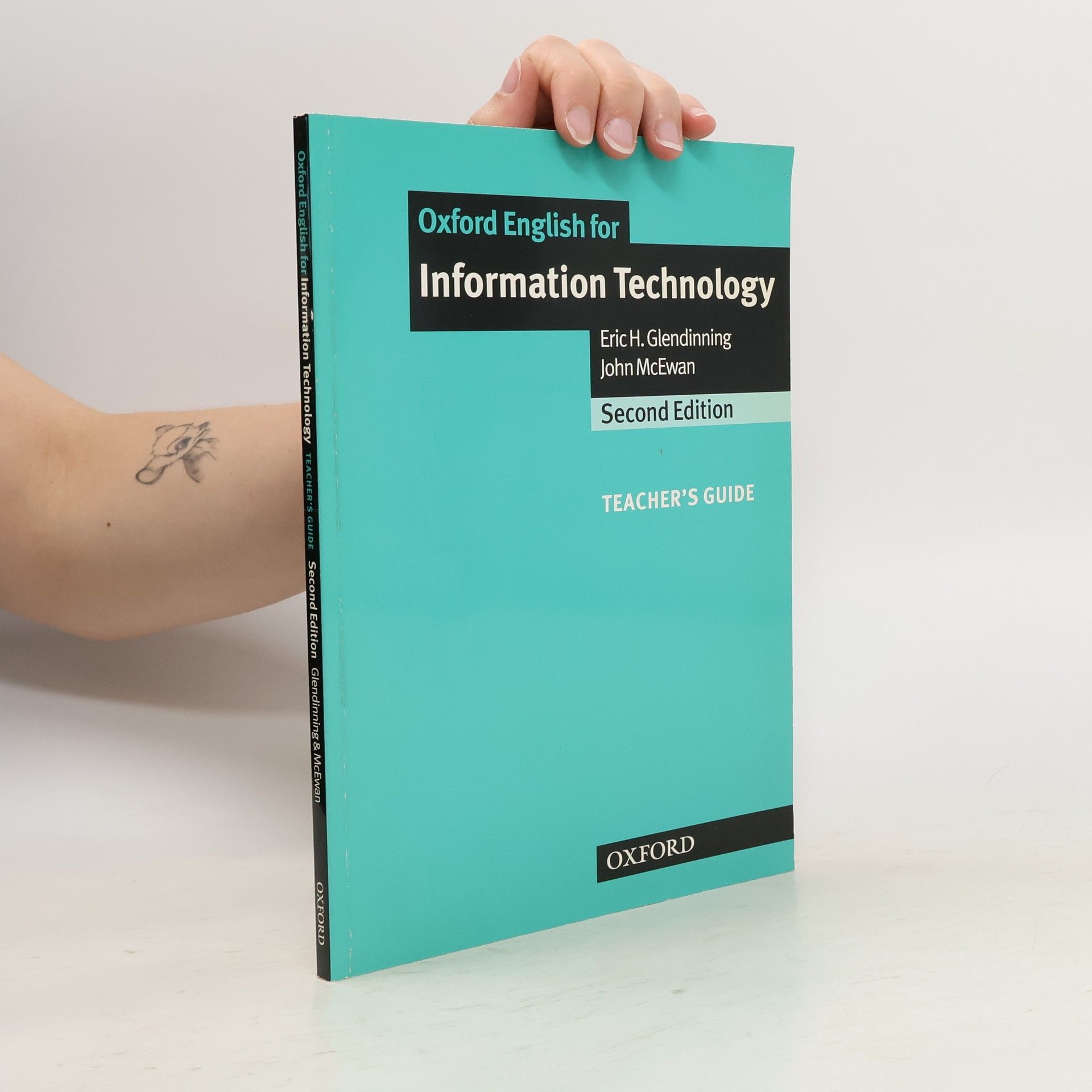


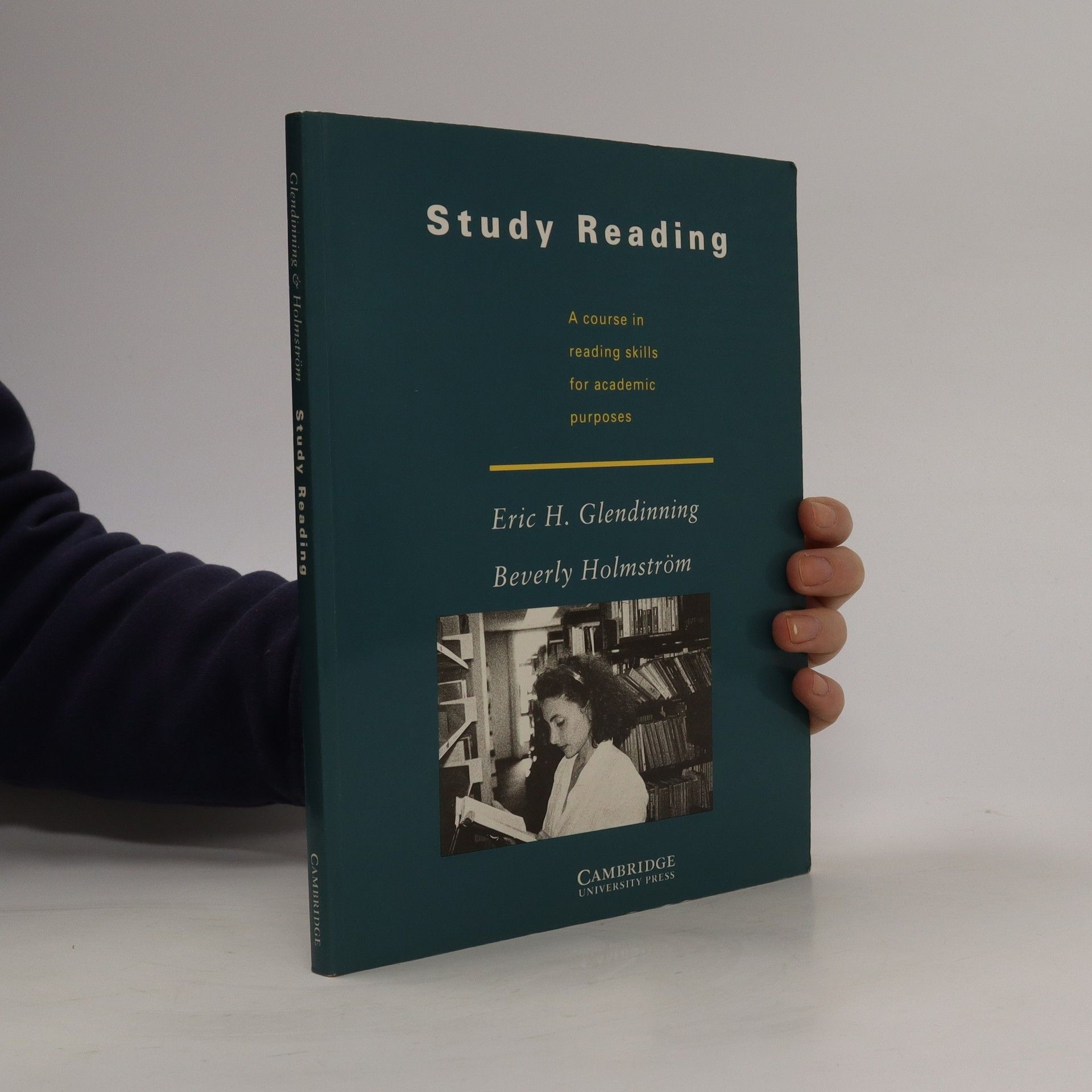
Technology 2
- 136 pages
- 5 hours of reading
Authentic and up-to date information in every course, written and checked by industry insiders Clear and straightforward structure, with each unit containing a menu of learning outcomes, and an end-of-unit checklist with 'Can do' tick boxes Teaches English in context, so students practise the language and skills they need for the job in real work situations Real-world profiles from genuine professionals in the 'It's my job' section offer authentic and engaging insights into the industry Extra facts, figures, quotations, and specialist terminology included in the top margin of unit pages Additional activities and tests in the Teacher's Resource Book make the course suitable for mixed-ability classes The Teacher's Resource Book provides specialist background to the industry for every unit, as well as industry tips to support non-expert teachers Project work in the Student's Book, additional activities on the Student's Site, and a Key words list of essential vocabulary at the end of every unit provide extra opportunities for revision
Professional English in use. Medicine
- 176 pages
- 7 hours of reading
Professional English in Use Medicine contains 60 units covering a wide variety of medical vocabulary. Topics include diseases and symptoms, investigations, treatment, examining and prevention. The book also introduces general medical vocabulary related to parts and functions of the body, medical and para-medical personnel, education and training, research, and presentations. Professional English in Use Medicine has been carefully researched using the Institute for Applied Language Studies medical corpus and is a must for teachers of medical English and for medical practitioners who need to use English at work, either in their own country or abroad.
Oxford English for Information Technology: Teacher´s Guide
- 138 pages
- 5 hours of reading
This Second Edition of Oxford English for Information Technology teaches students language skills in the context of computing and information technology. The Teacher's Guide provides teaching objectives, teaching notes and answer key, listening script and photocopiable progress tests.
Oxford English for Information Technology
- 224 pages
- 8 hours of reading
This new edition contains updated material to keep users up to speed in this fast-moving industry. All four language skills are consolidated and developed through a variety of authentic and visual materials related to the topic.
Basic English for computing
- 136 pages
- 5 hours of reading
A fully revised and updated edition of this popular low-level course.
Oxford English for Electrical and Mechanical Engineering. Answer Book with Teaching Notes
- 48 pages
- 2 hours of reading
Helps students to combine their knowledge of English with their technical knowledge and develops all four skills through varied activities. Five units out of thirty are based on interviews with students and people working in the industry and place more emphasis on listening skills.
Oxford English for electronics
- 208 pages
- 8 hours of reading
This book develops all four skills through a series of tasks that encourage students to combine their knowledge of English with their technical knowledge. A comprehensive glossary of technical terms is included.
A course for learners of intermediate level or above who need to develop their reading skills for academic purposes. The text adopts a learner-centred approach suitable for both classroom use and self-study.
English in Electrical Engineering and Electronics
- 130 pages
- 5 hours of reading
English for technical & scientific purposes
